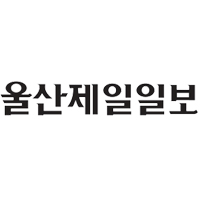-4Q operating income 1,123.47% ↑
-Growth of medium and large batteries such as energy storage devices
-Expected to turn electric vehicle battery surplus this year
–
Samsung SDI reached a record high of 11 trillion won in annual sales last year.
According to Samsung SDI’s fourth quarter and yearly results for 2020 released on the 28th, last year’s annual operating profit was 671.3 billion won, a 45.26% increase from the previous year.
The annual operating profit is the second largest since 2011, when Samsung SDI declared that it removed the display business and switched to battery as its flagship. The largest operating profit since 2011 was 715 billion won in 2018.
Annual sales amounted to 11,2948 billion won, an increase of 11.86% from the previous year. Net profit increased 56.81% to 633 billion won.
Operating profit for the fourth quarter was 246.2 billion won, up 1123.47% compared to the same period last year.
In the fourth quarter, sales increased by 15.3% to KRW 3.25 trillion. Quarterly sales reached a record high in a row following the third quarter.
Net profit in the fourth quarter turned to a surplus of KRW 341.9 billion.
However, 4Q operating profit was 26.2% less than the market forecast of 333.4 billion won by Yonhap Infomax.
The company explained that 4Q results were slightly slower as sales of small-sized batteries declined in the fourth quarter and provisions related to electric vehicle fires were reflected.
In the energy (battery) division, sales in the fourth quarter were KRW 2.62 trillion, up 10.3% from the previous quarter, and operating profit was KRW117 billion, down 15.3% from the previous quarter.
In the market, there was also an expectation that Samsung SDI would succeed in turning the electric vehicle battery into a surplus in the fourth quarter of last year, but the turnaround failed due to the setting of provisions related to electric vehicle fires.
However, Samsung SDI predicted that a turnaround could be possible this year as the foundation for a turnaround has already been laid and profitability improvement is clearly appearing.
In the fourth quarter of the electronic materials business, sales were KRW 622.2 billion, down 11.6% from the previous quarter, and operating profit was KRW 129.2 billion, the same as the previous quarter.
Polarizing films entered a seasonal off-demand season, and sales of semiconductor materials also declined due to customer inventory adjustments.
In contrast, OLED (Organic Light-Emitting Diode) materials have expanded their supply to new flagship smartphones.
This year, the market is expected to grow in all sectors such as electric vehicle batteries, ESS, small batteries, semiconductors and OLEDs, Samsung SDI said.
According to eco-friendly policies of governments in Europe, the US, and China, the electric vehicle market is expected to grow rapidly, and demand for the ESS market is also expected to expand.
In response to the expansion of the electric vehicle market, Samsung SDI plans to expand electric vehicle battery facilities on a similar scale as last year.
Samsung SDI also plans to mass-produce the next-generation electric vehicle battery’Gen5′ from the second half of this year to further expand profitability. Gen5 is the first product to apply the new high-nickel NCA cathode material method to improve energy density, and it reduces material costs by about 20% compared to existing products.
The company said that the product has already been verified and prepared for mass production, so there will be no problems with initial yield.
The demand for small-sized batteries is also expected to rebound as demand for mobility (transportation) increases and the housing economy recovers.
Last year, there were no new expansions for small-sized circular batteries, but this year, Samsung SDI said that some expansions are planned in response to increased demand.
In the first quarter of this year, the company expects its earnings to slow slightly due to the influence of the seasonal off-demand season.
Reporter Kim Ji-eun
Copyright holder © Ulsan Jeilbo Unauthorized reproduction and redistribution prohibited
–

